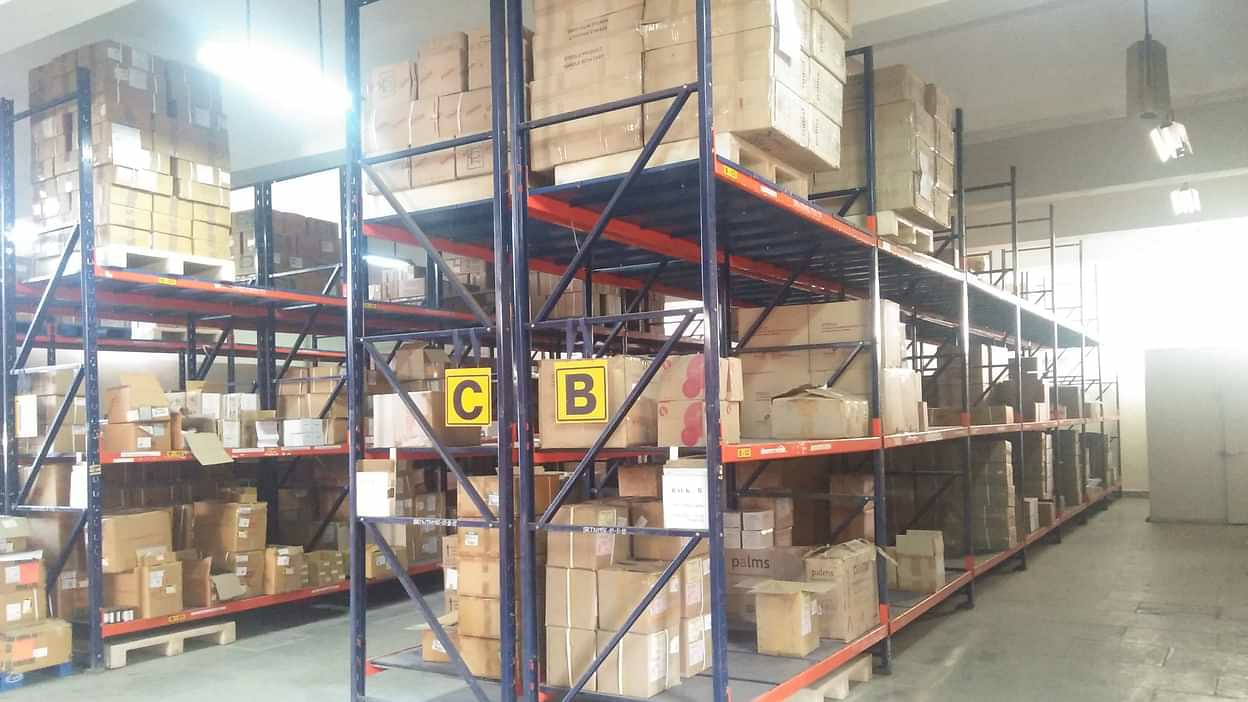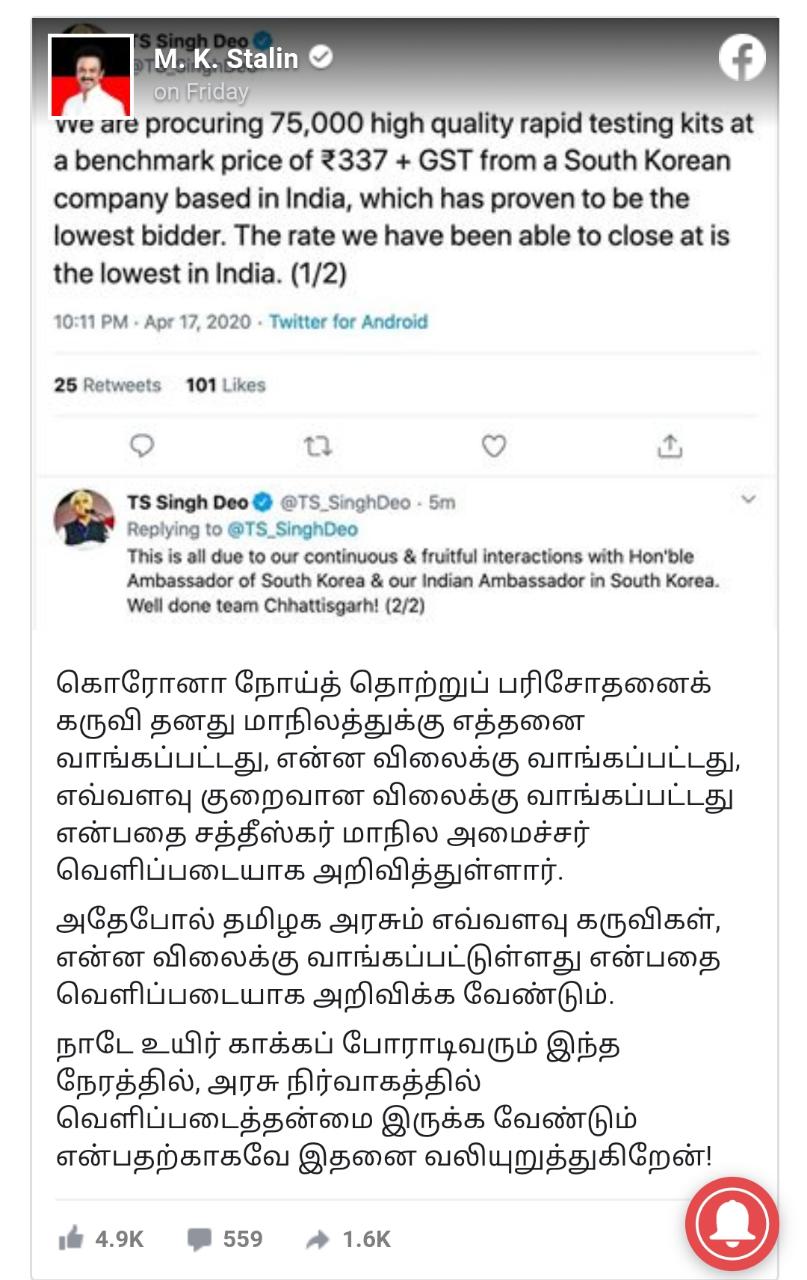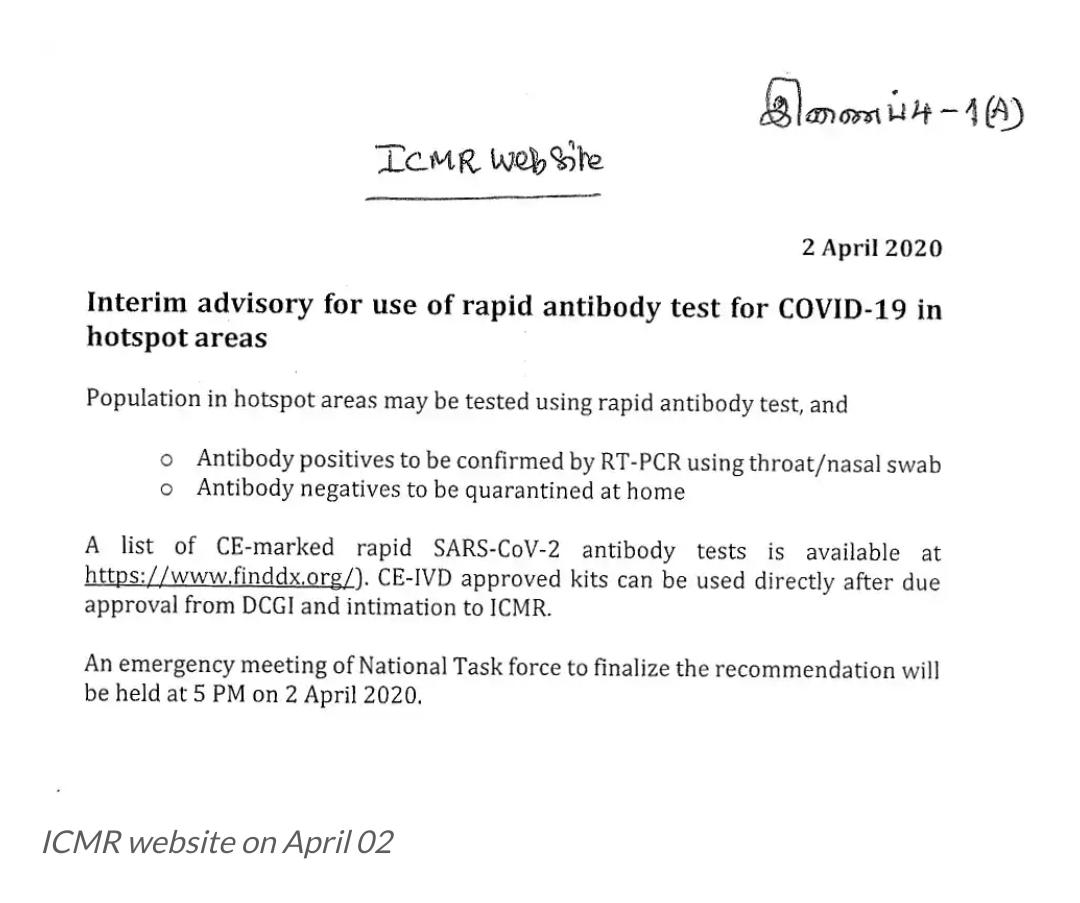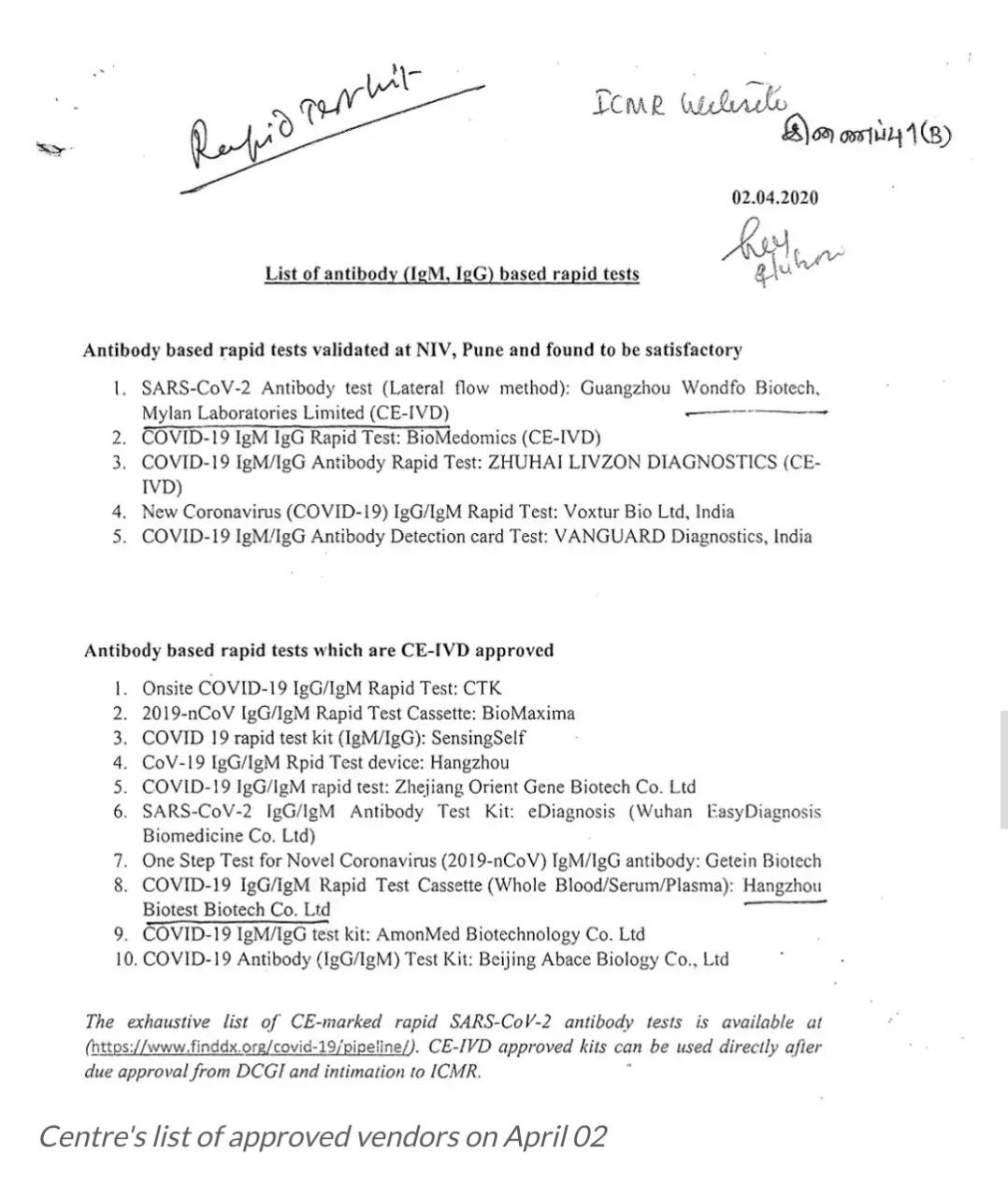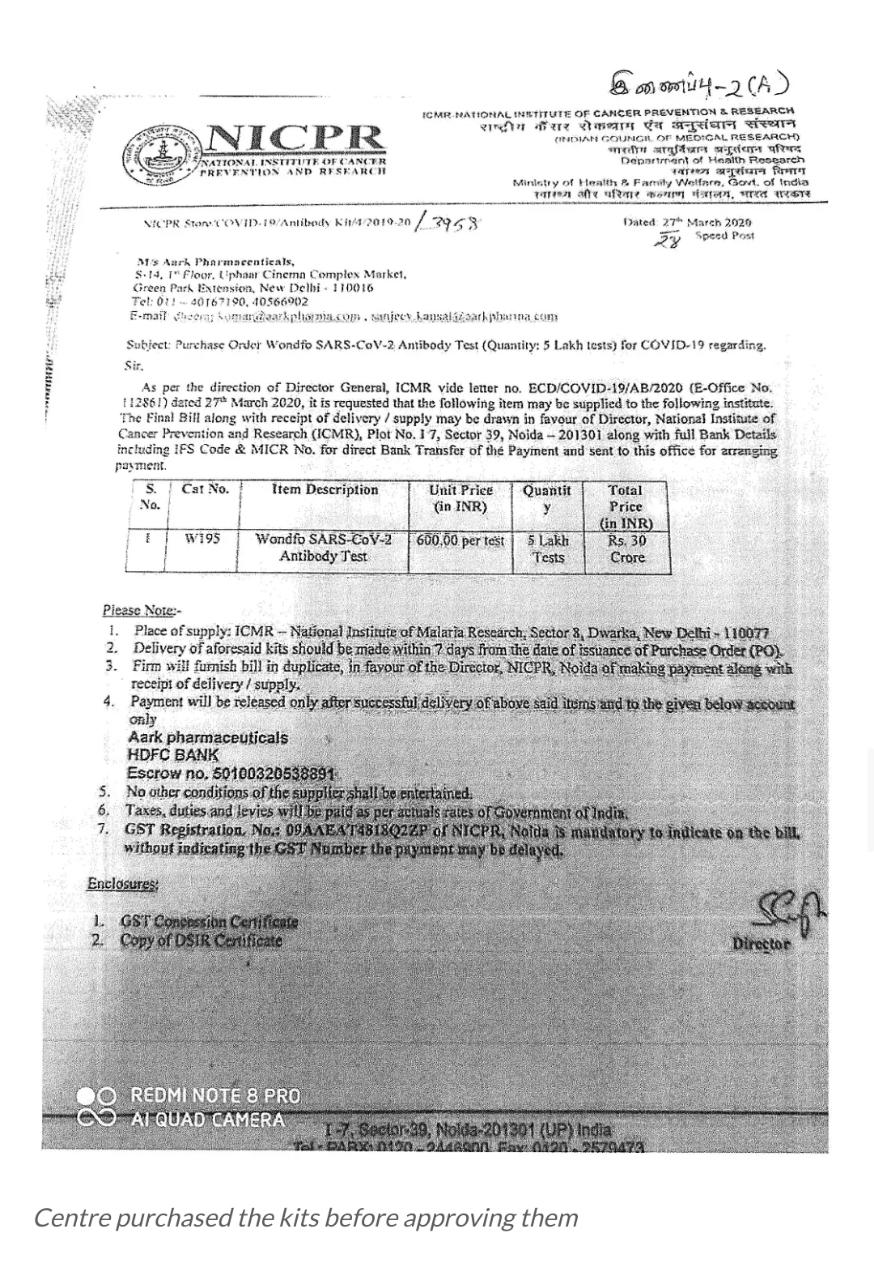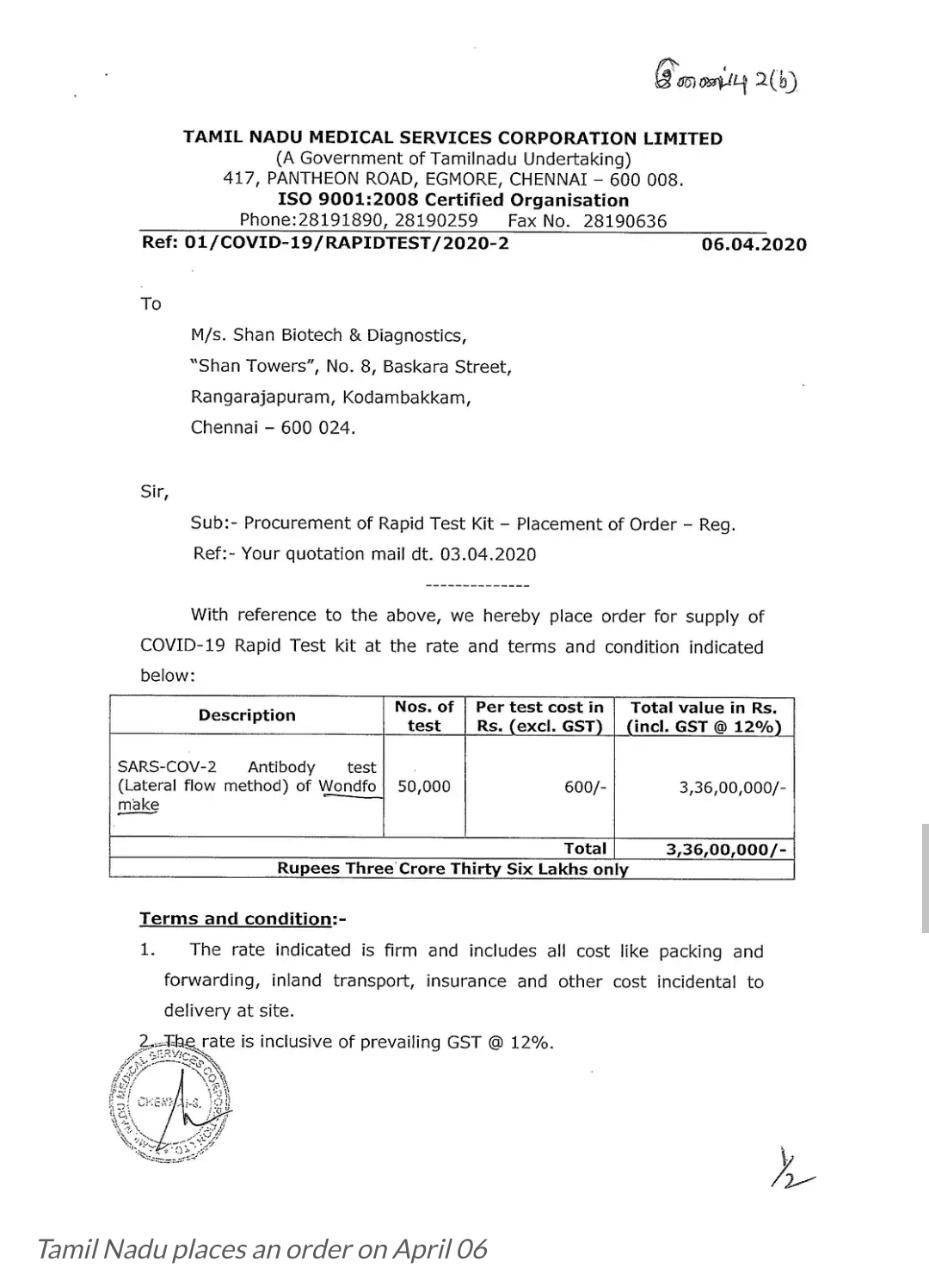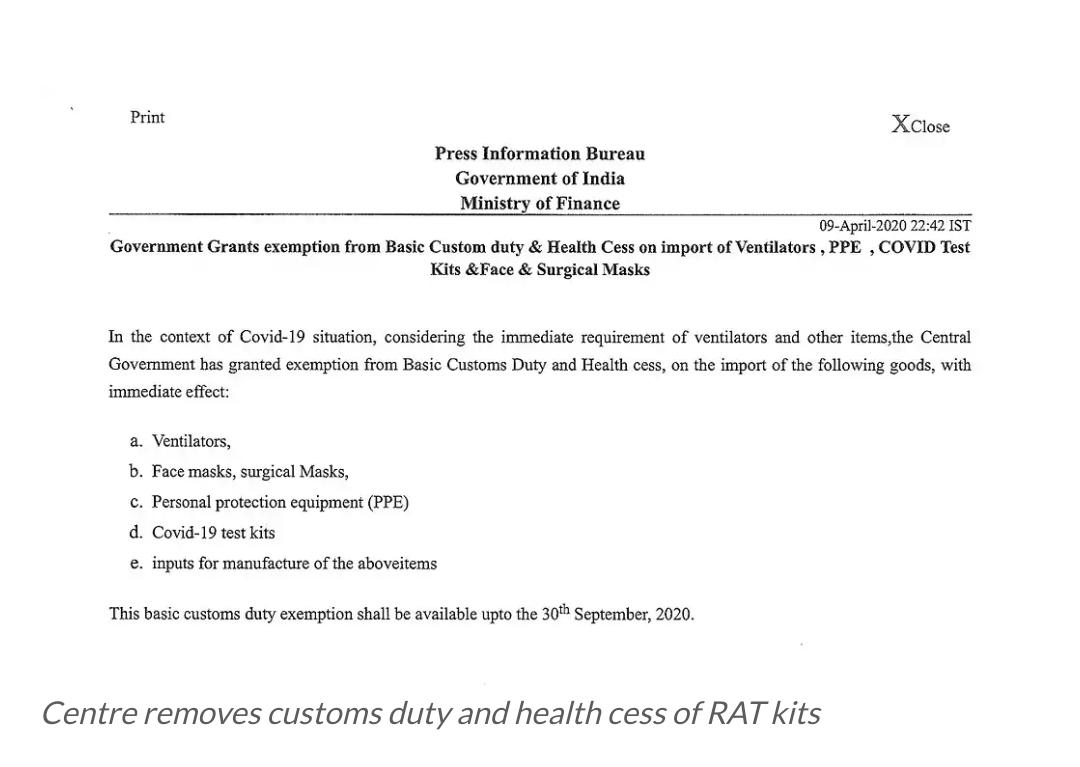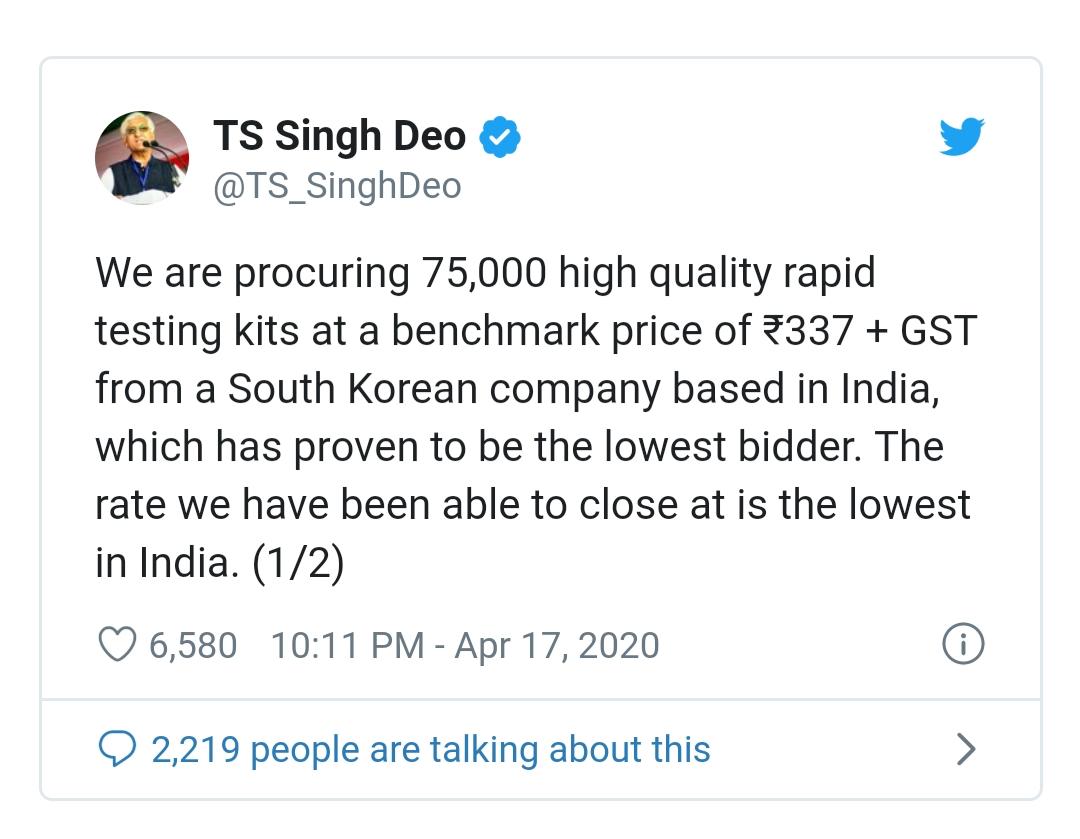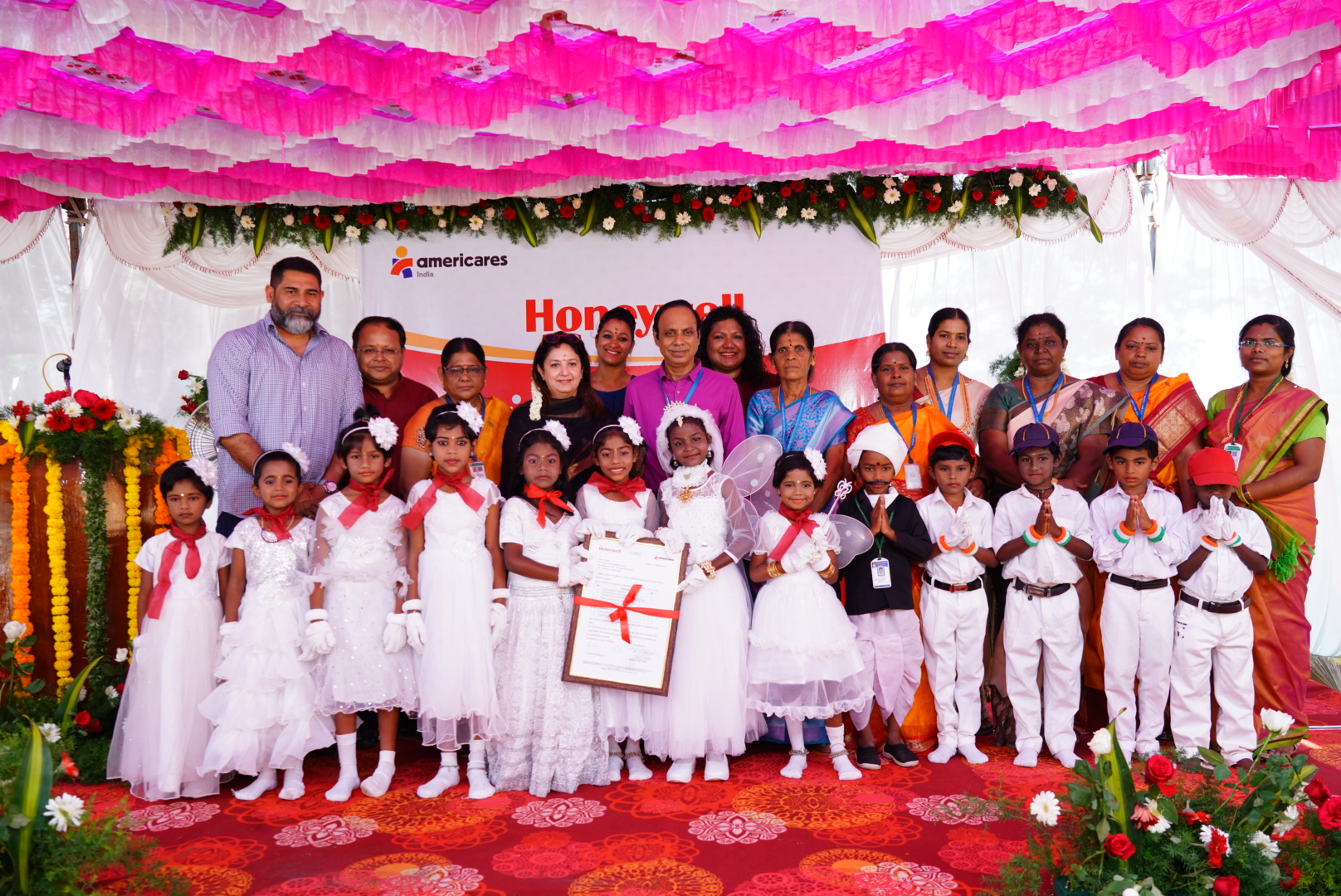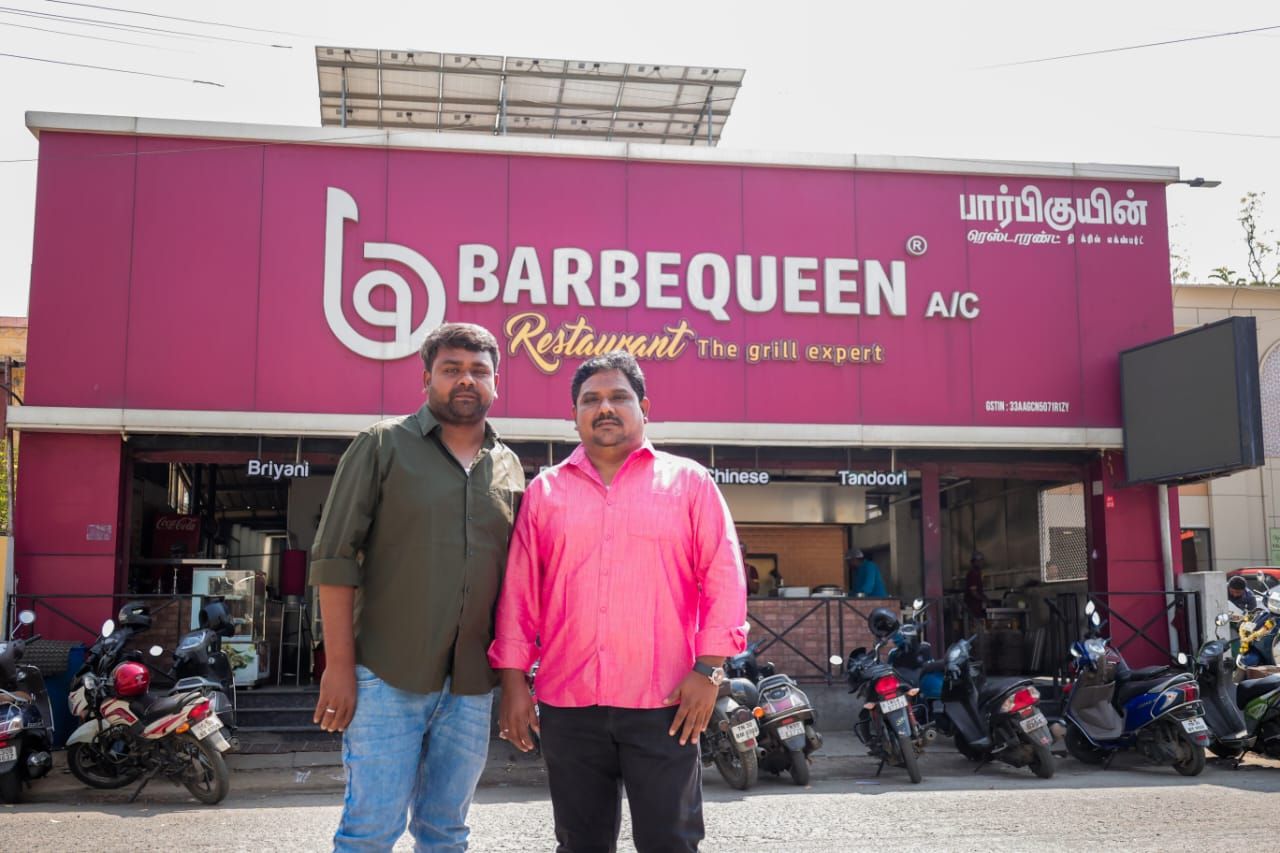Trending Now
- 830 voters names go missing in Kavundampalayam constituency
- If BJP comes to power we shall consider bringing back electoral bonds: Nirmala Sitaraman
- Monitoring at check posts between Kerala and TN intensified as bird flu gets virulent in Kerala
Tamilnadu News
How Tamil Nadu Got Drugs, PPEs, Masks In Place Ahead Of The Curve
![]() April 20, 2020
April 20, 2020
In January, the Managing Director of the Tamil Nadu Medical Services Corporation (TNMSC), IAS officer P Umanath, was watching the developments in China’s Wuhan province with growing concern.
It was not because he worried that the COVID-19 virus would come to India soon. He had no way of knowing that, of course.
He had a more practical concern in mind. The worry that Tamil Nadu may run out of basic drugs such as paracetamol, azithromycin and others that were used in government hospitals across the state to treat the poor masses.
On January 22, he called a meeting with his staff and the vendors that supply these drugs to the TNMSC. At this time, the Coronavirus was yet to reach Indian shores.
“We knew that even if other segments were not affected, the drugs segment would get hit,” explained a senior official at the TNMSC to The Lede. “This is because around 70% of the ingredients for the drugs are imported from China. Drugs are made with three key elements – APIs or Active Pharmaceutical Ingredients, excipients, and key intermediaries (KIs). 70% of these come from China. And with the virus spreading in China, we were worried that our supplies for the drugs could get cut off,” he said.
A long interaction followed with all vendors. The consensus being that even if India was not affected by the Coronavirus, the existing stock would be adequate for only 2-3 months. After that if stocks do not come, the state would be in trouble.
“You have to understand that the TNMSC’s procurement protocol ensures that at any time three months’ stock is available,” said the senior official. “The state needs six crore tablets of paracetamol every month. So at any time we have 18 crore tablets of paracetamol. The software is such that if there is a shortfall in the stock, it will automatically generate an order. There is no discretion involved,” he said.
But this was a special case. And special cases need special actions.
“We took a conscious decision as a special case. We obtained consent to supply six months more stocks, basically to stock up to October 31. We got consent from the vendors. Once that was done, we overruled the software by a manual order and placed an additional order for 36 crore tablets,” he said.
That pre-emptive decision is now bearing fruit. Supplies from China took 60 days to arrive. Now, the TNMSC is getting its deliveries for that massive order placed in January.
“It was the biggest order ever given in the history of TNMSC,” said the senior official. “Rs 146.27 crore worth of orders for drugs procurement was given at the beginning of February,” he added.
Stocking Up For The Crisis
The bugle was blown by the Centre towards the end of January when Coronavirus cases began to emerge in Kerala. A group of students who had arrived from Wuhan tested positive for the virus and the Centre notified all states to be prepared for possible cases of the virus coming from abroad into India.
Heeding this, the TNMSC immediately swung into action, placing orders for five lakh numbers of triple-layer masks, 50,000 numbers of N95 masks, 40,000 numbers of PPE kits and three lakh litres of sodium hypochloride solution.
“When all these were ordered, there was not even one positive case in Tamil Nadu,” said the senior official.
The state kept placing orders for all of the above and began stocking the supplies in warehouses. “Our strategy was that we will stock and put it into warehouses. We will not procure and deliver to institutions, unlike what other states are currently doing. Just imagine, if for example, a government hospital requires 500 PPE kits tomorrow and I place my order today – for the next three days, the hospital will be without any kits. Also there is no certainty that I will get that supply. But since we began to procure safety supplies so early, we were able to stock warehouses and build those stocks over a period of time,” said the official.
Once positive cases began appearing in Tamil Nadu, the TNMSC gave orders for 40 lakh numbers of N95 masks, 1.45 crore triple layer masks and 21 lakh PPE kits – the highest procurement orders in India by any state, according to the TNMSC’s claim – to the tune of Rs 204.85 crore.
Of this, Rs 51.49 crore worth of supplies was procured immediately and distributed to hospitals.
As the stocks built up, the state developed a different system. Warehouses were identified across the state in every district and procured supplies were stocked in them. Hospitals, government departments, corporation officials, the police, all had a quota for masks and PPE kits, depending on their need.
Each institution could come to the warehouse on a daily basis and pick up the allocated quota of supplies without having to wait for government to send the same to them.
“For instance, if a hospital has a quota of 5000 masks on a daily basis, they can send a vehicle and pick up the masks from the warehouse. Even if they don’t use up all the 5000 masks they get another 5000 the next day. So this ensures that the hospitals have backup stocks at any point in time and do not run out of the essentials,” said the TNMSC official.
As the number of COVID-19 cases shot up, the TNMSC increased quotas commensurate with the demand as well. “As of now, two lakh masks are being supplied overall every day, along with 20,000 N95 masks and 16,000 to 17,000 PPE kits on a daily basis,” he added.
Stocks at the warehouses are also holding steady as the state keeps topping up.
As of April 19, the stocks available at warehouses across the state are as follows:
Triple layer masks: 68.45 lakh
N95 masks: 3.2 lakh
PPE kits: 2.9 lakh
PCR testing kits: 1.37 lakh
“Our supply chain has matured in this period. Even if our supply is disrupted for 2-3 weeks, we can manage. Also please note, this stock does not take into account the stocks in the hospitals. Hospital stock is 20% of the total number,” said the official, referring to the unused daily stocks that are with hospitals.
Drugs & Rumours
“We also procure based on rumours,” laughed the senior official at TNMSC. Apart from the pneumonia management drugs, paracetamol, hydroxychloroquine, azithromycin, cefotaxime, ceftriaxone and IV fluids needed for COVID-19 management, TNMSC has also closely monitored research studies, news reports and articles from all over the world for drugs that could possibly help treat the virus.
“Our mantra was – Don’t hesitate, buy 20 lakh tablets of those drugs. As more medicines come into the public domain as possible treatments, buy it and keep. We don’t know which ones of these will work. If one drug works, the next day it will not be available,” explained the official.
The official narrated the instance of US President Donald Trump announcing that hydroxychloroquine was the magic pill for COVID-19 treatment.
“The day after Trump spoke, none of our usual vendors who supply us with the drug is taking my calls,” recounts the official. “That is demand and supply for you. It is a seller’s market now.”
Allegations & Responses
Opposition leader and Dravida Munnetra Kazhagam (DMK) president MK Stalin posted on Twitter and Facebook handles, a tweet by Chhattisgarh health minister TS Singh Deo along with a message demanding to know how much the Tamil Nadu government had paid for rapid test kits.
The next day, April 18, TNMSC MD P Umanath was bombarded with questions regarding the same at a press conference. The Lede has come to understand that some of those same reporters who flung allegations at the TNMSC MD at the press conference, later sent messages of apology to the officer.
The Lede asked about what the TNMSC had to say in response to the allegations by the NGO.
The senior official explained the sequence of events.
On April 02, the government of India gave concurrence for conducting the rapid antibody test or RAT. Up until this time, all states were using only the RT-PCR test which relies on nose and throat swabs. The RAT is a blood test.
The ICMR (Indian Council of Medical Research) also provided a list of approved vendors to all states.
On April 04, the ICMR updated the list of approved companies – a total of seven.
The Centre though had by then, on March 27/28, had already placed orders for the RAT kits.
“Immediately we tailed them and got details of which vendor the Centre had placed orders from,” said the senior official at TNMSC. “Of the seven, only one or two were larger firms. All the others were small firms. We then placed orders with the same vendor for the same product, at the same price,” he said.
By April 06, the order had been placed by Tamil Nadu as well.
Three days later, on April 09, the Centre removed customs duty and health cess on all these products.
About five days after this, another list of vendors, an exhaustive one, was issued by the ICMR. Korean firms were also in the list.
In the first week of April, Chhattisgarh floated a tender, and then closed it saying very low rates had been quoted.
Another tender was floated by the government but the vendor who won, backed out, saying he could not supply at the rate he himself had quoted.
Finally, on April 14, Chhattisgarh floated a tender and gave the order to the Korean firm for a price less than that paid by the Centre and Tamil Nadu.
The furore erupted because the Chhattisgarh government had procured the same rapid test kits at the rate of Rs 337 per kit.
The Centre and the Tamil Nadu government had, on the other hand, procured the kits for Rs 600 apiece.
“We had given the order for 50,000 kits well before the government of India had removed customs duty and health cess on the kits,” explained the senior health official. “We paid the same rate per kit as the Centre did for five lakh kits. Since the customs duty and health cess were removed, the price of the kits came down. Today, even if we float a tender, we can get the kits at a cheaper rate than Chhattisgarh has got it for,” said the official.
He also pointed to the purchase by the state of Andhra Pradesh – two lakh rapid test kits at the rate of Rs 730 per kit.
“The same kit has been procured by Andhra Pradesh from South Korea at a much higher rate. Does it mean that Andhra has something to hide? No, it is not a scam. In a crisis like this, rates go up and down depending on demand and supply. Even if tomorrow the prices of all these essentials increase drastically, we will have to purchase at a higher rate. Can we haggle over rates when people are dying?” he asked.
“Many states have placed orders at rates higher than the government of India rate. This is due to high demand, lack of volumes and prices of the essentials are shooting up. There are many cases where the Centre gets a lower price due to larger orders and the states are given higher prices by the same vendor for the same product since their orders are smaller than those of the Centre,” he said.
Tamil Nadu has given orders for 1,33,700 PCR kits to be procured separately, apart from what the ICMR is providing to the states. Orders for procurement have already been issued.
Orders for procurement of five lakh rapid test kits too have been issued. Unfortunately the first batch of RAT kits which were meant to come to India from China were diverted to the US.
560 new ventilators have already been given to hospitals. Procurement orders for another 2571 ventilators too have been issued. The TNMSC has also taken over a bunch of ventilators confiscated by customs at the airport, belonging to a firm, and is in the process of repairing, calibrating them and handing them over to hospitals.
The TNMSC is also providing cots, mattresses and other medical equipment for 10,000 additional bed facilities in the state.
While the TNMSC seems to have got a headstart, it is now up to District Collectors, Superintendents of Police and the higher authorities to ensure that lockdown rules are followed stringently so that Tamil Nadu may swiftly get rid of the infection.





